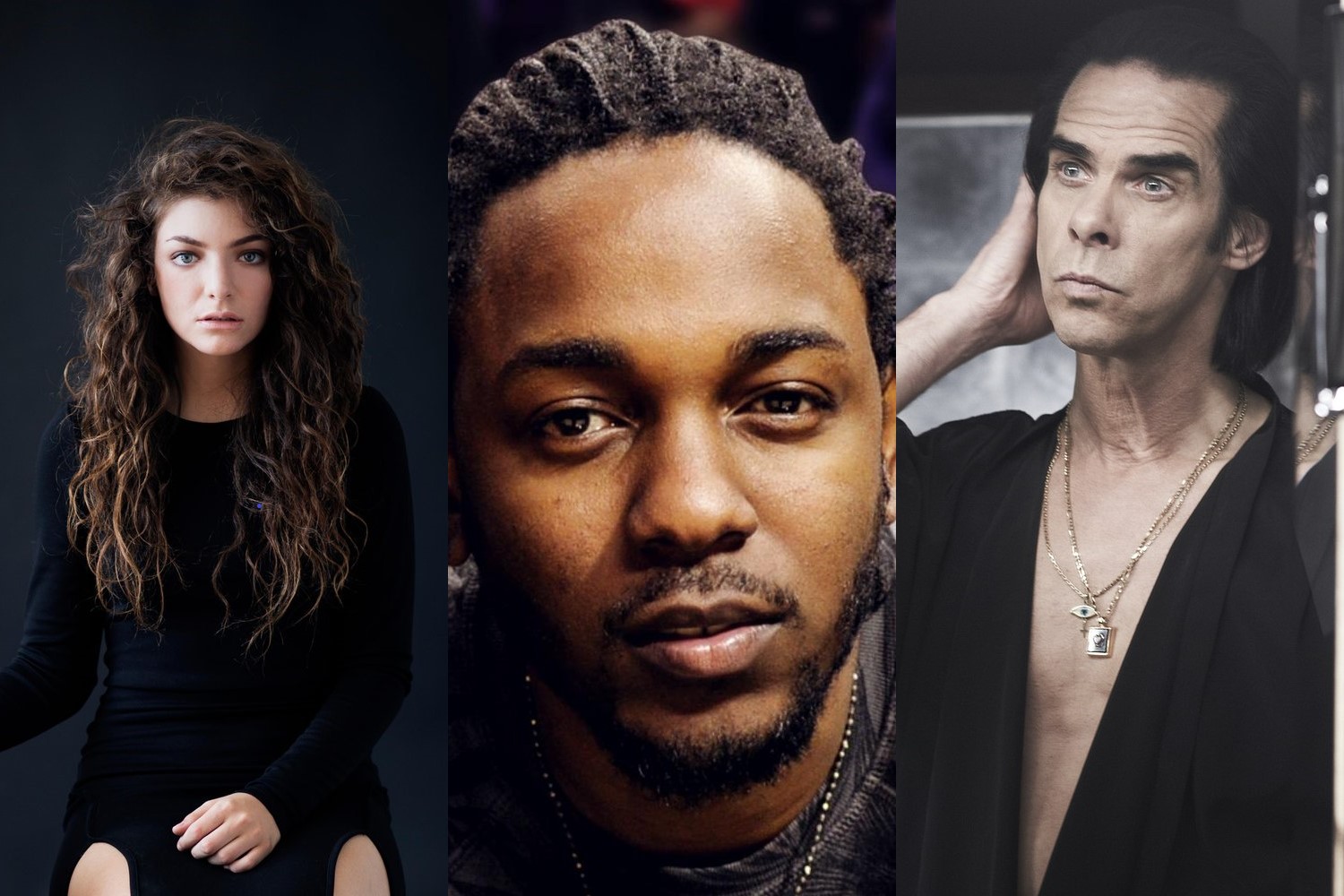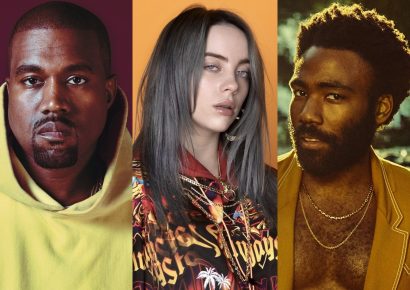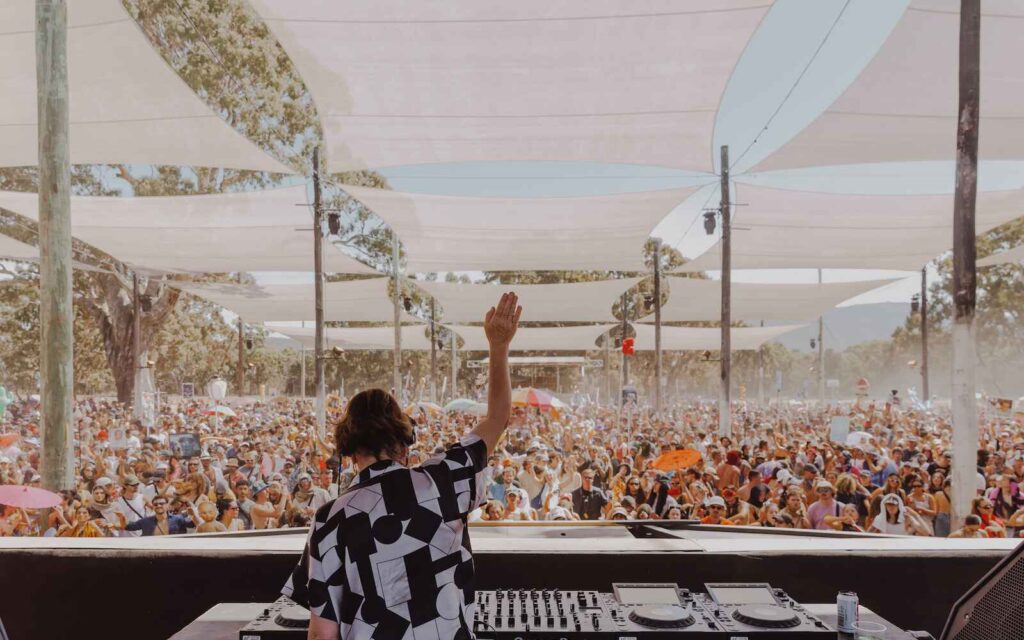The 2010s are drawing to a close and so, we asked you for your favourite albums from the past ten years. Here’s our take on your top picks, we hope this little wander down memory lane doesn’t make you feel too old…
#25: Childish Gambino — “Awaken, My Love!”

While his creative genius had been hinted at on previous projects, it was with 2016’s “Awaken, My Love!” that saw Donald Glover prove his worth and become the critical darling we know and love today. Heavily drawing upon Funkadelic’s funk-rock sound of the ‘70s, “Awaken, My Love!” spills over with producer Ludwig Göransson’s organic grooves, while Glover puts his bars on the backseat to flex his vocal range to masterful effect. ‘Me And Your Mamma’ is freaky psychedelia at its best, ‘California’ recalls classic Motown, and then, of course, there’s ‘Redbone’; the slinky funk anthem with a catch cry chorus of conscience. Sublime stuff.
By Will Brewster
#24: Daft Punk — Random Access Memories
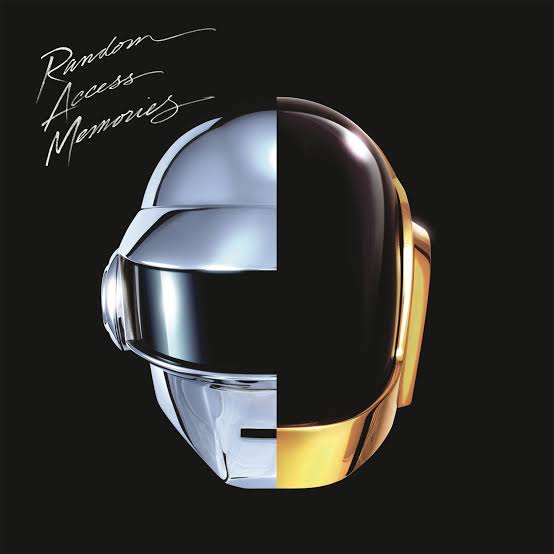
On a multitude of levels, Random Access Memories is an exercise in disruptive innovation. Savvy, and expensive, marketing resulted in people being excited for an album in an age where people don’t get excited for albums. The electronic duo presented near-pure organic drums in an age when listeners demand a pounding electronic throb and ornate aural textures when the majority of plays would come via streams through tinny laptop speakers. After building a career out of lifting samples wholesale, Daft Punk abstained from the practice on Random Access Memories, save for ‘Contact’’s utilisation of The Sherbs (good to see old mate Daryl Braithwaite nab a songwriting credit on the biggest album of 2013).
By Lachlan Kanoniuk
#23: Vampire Weekend — Modern Vampires of the City
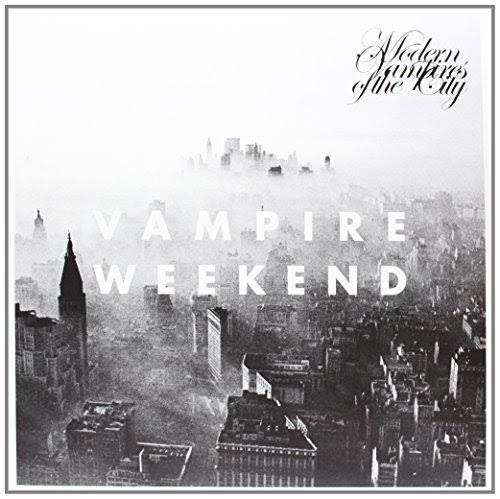
With their third release, Modern Vampires of the City, Vampire Weekend continued to fine-tune their already tight sound. The African-inspired fervour of albums past still lurks in the shadows while chamber pop stylings come to the fore. But beneath the warm flutters of organ and upbeat jaunt that stretches across the record, lyrics musing on death and wavering faith become the focal point. Extending their scope beyond grammatical woes and college campus shenanigans, Modern Vampires of the City sees Vampire Weekend shedding their collegiate skin and expanding their creative vision.
By Kate Streader
#22: Arcade Fire — The Suburbs
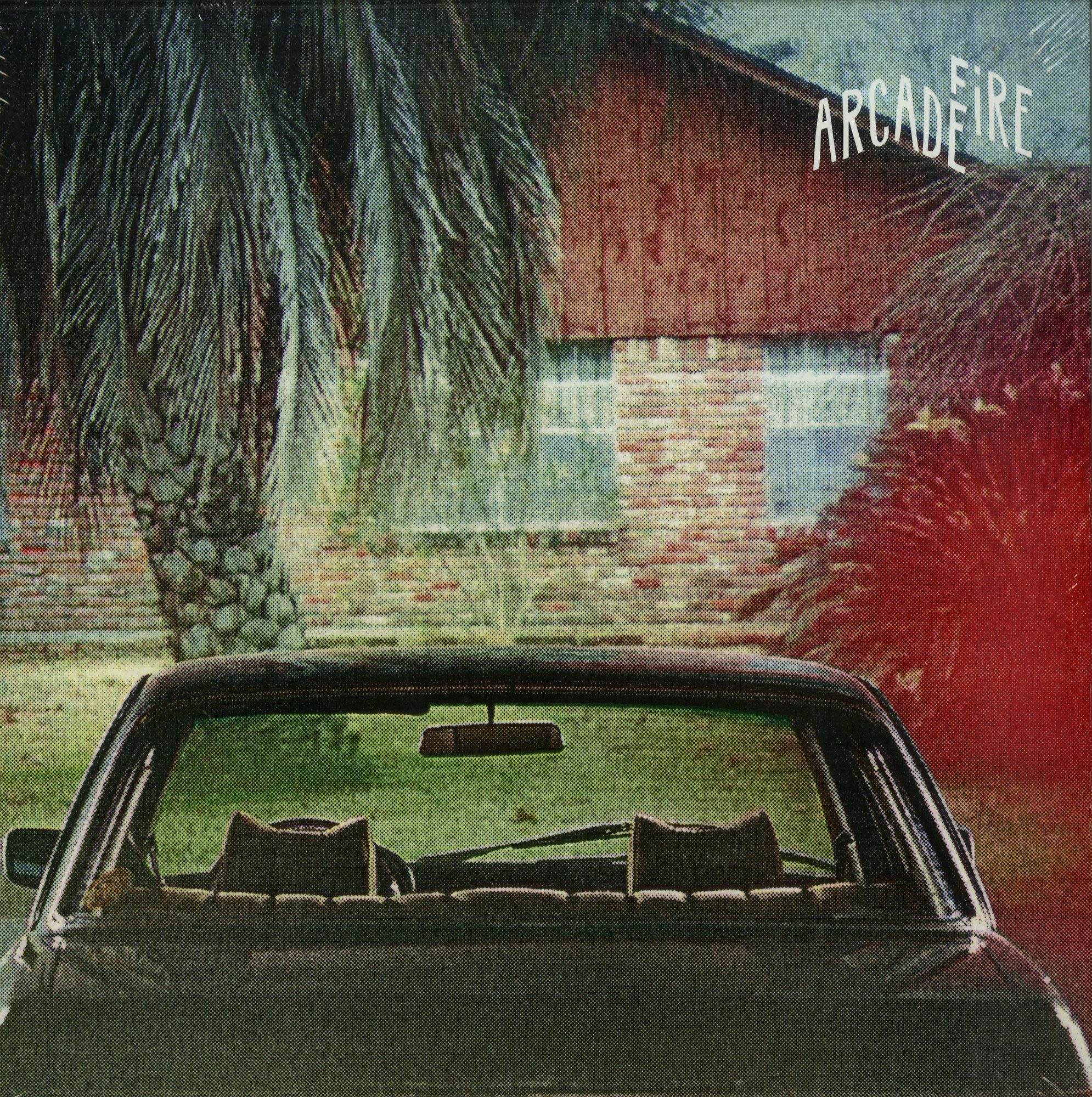
After turning art-rock on its head with their 2004 debut Funeral, Canada’s finest indie cohort set a strong precedent at the start of the decade with The Suburbs. A sepia-tinged affair with anthemic instrumentation and a lyrical arc based upon frontman Win Butler’s upbringing in the outskirts of Houston, The Suburbs is so finely crafted that it almost makes being a bored and lonely teenager sound enticing. The songwriting is untouchable, the arrangements are soaring and the sequencing of tracks works better than most novels – has a record ever simultaneously sounded this exuberant and dystopian?
By Will Brewster
#21: Adele — 21
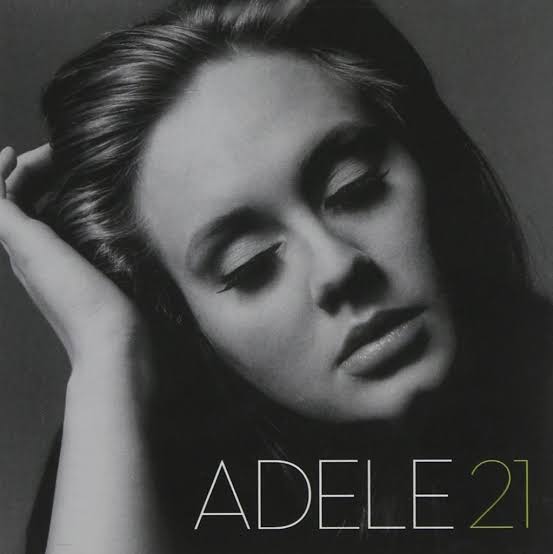
21 is one of those albums that just makes you think, ‘Who hurt you?’.
On 21, Adele makes it clear she’s been through the ringer when it comes to love, but she’s sure to get in a few jabs of her own. The record is grand, even in its most vulnerable moments, with Adele’s smoky vocals soaring across tear-streaked ballads and rivalling the often bombastic production value.
For every vocal crack and emotional gut punch, there’s a flicker of sass; a flash of fire. Bold and unwavering, fierce and unforgiving – it’s the breakup album we’ve all come to need at some stage.
By Kate Streader
#20: Billie Eilish — When We All Fall Asleep, Where Do We Go?

Billie Eilish’s rise to stardom has been meteoric, to say the least. In less than two years she has risen from just another SoundCloud artist to the most talked about singer of our time, with everyone offering up their own opinion on her angsty teen demeanour.
Diversity is key to When We All Fall Asleep, Where Do We Go?; one minute you’ll be assaulted with the trap beats of ‘you should see me in a crown’ and then lulled into the childlike ‘8’.
Melancholic ballads slowly bring the album to a close, leaving the listener just as dejected as the singer feels. Ultimately, Eilish leaves us desperate for more with the bold statement of an artist who is only just starting to find her voice.
By James Robertson
#19: Lorde — Pure Heroine
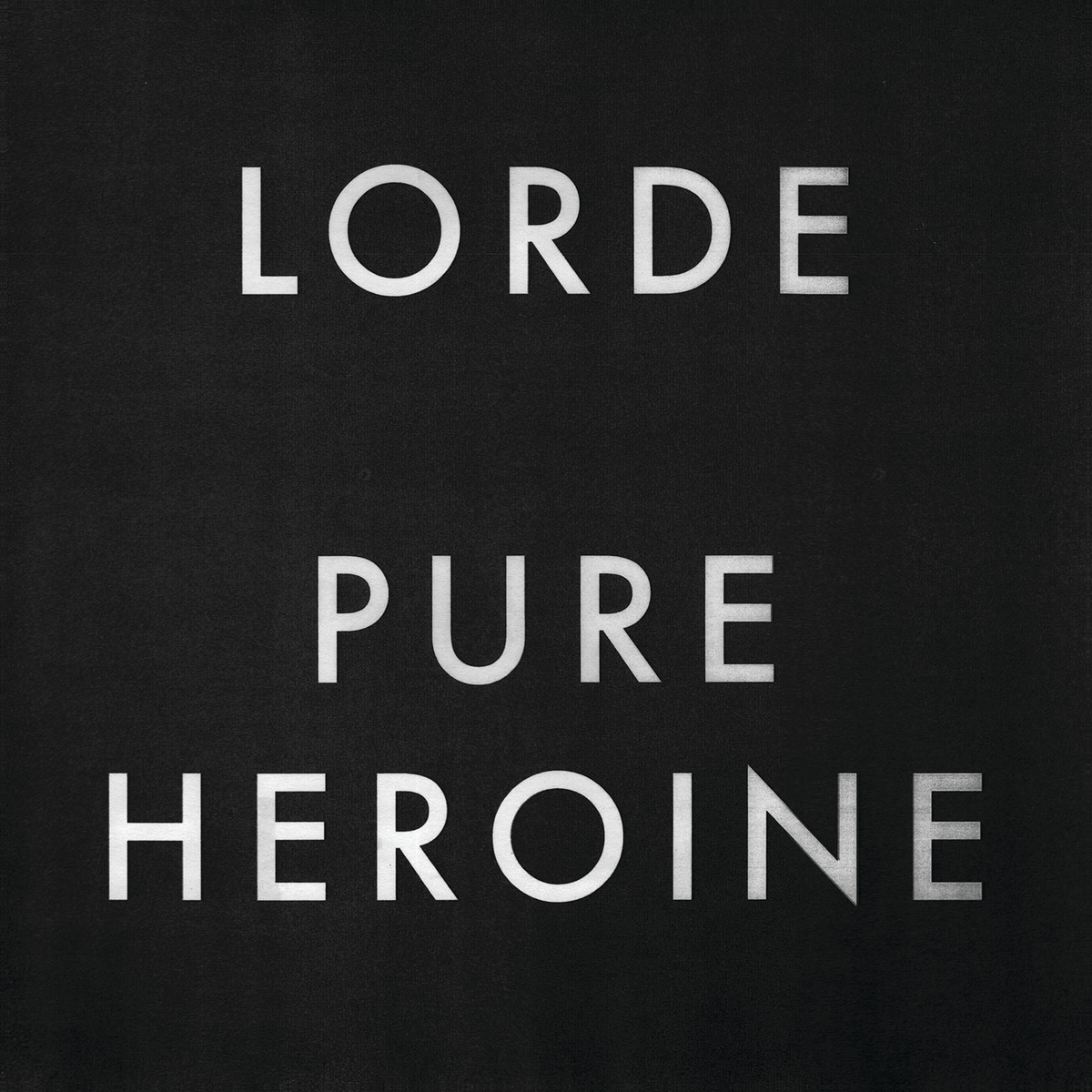
At just 16 years old, Lorde unleashed Pure Heroine – a sleek collection of moody, pensive pop – and exploded on a global scale.
Driven by earworming hooks and churning synth backdrops, Pure Heroine marked a new pop territory; one offering something a little grittier and grungier than the sugar-glazed, neatly wrapped productions that typically top mainstream charts.
Dissecting everything from internet culture on ‘A World Alone’ to social status on ‘Royals’, Pure Heroine offers a series of eloquent musings which surpass the wisdom expressed by the vast majority of her pop peers, let alone those of most teens.
If there were a handbook on how to nail a debut album, Pure Heroine would surely be laid out as a leading example.
By Kate Streader
#18: Nick Cave and the Bad Seeds — Ghosteen
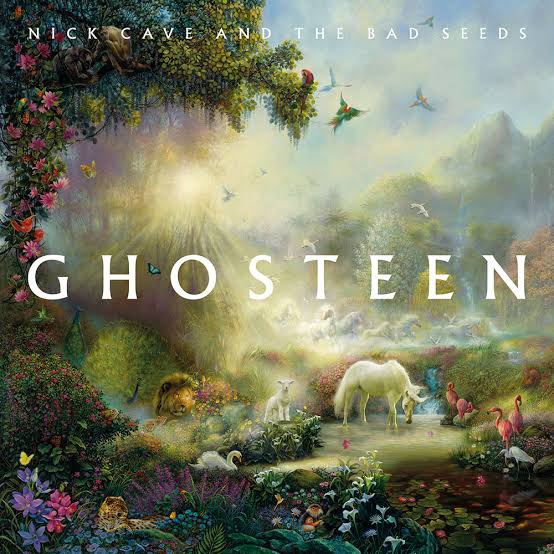
While most would interpret Nick Cave’s 2019 double album as a deeply sad record, Cave recently praised those who thought otherwise.
“We wanted each song to feel as if it were climbing toward an exultant and euphoric state, for the record to be a vessel that transported the listener far away from the world and its troubles, and that it lived in the jubilant and hopeful beyond,” Cave wrote in a blog post.
Can you blame them, though? Cave’s 17th studio album tackles grief, mortality and all the good stuff the band are known for. No matter what you take from it, a masterpiece like this after four decades just goes to show Cave ages like a fine wine.
Ghosteen was also voted Beat’s People’s Choice Album of the Year.
By Caleb Triscari
#17: Robyn — Body Talk
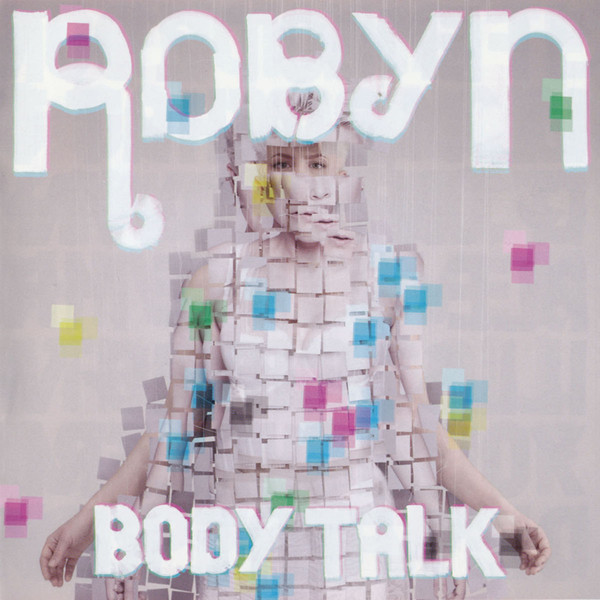
Why isn’t all pop as euphoric as this? With Body Talk, Robyn cemented her cult status with considerable force. Following on from two strong mini-albums, the final cut was the definitive Body Talk, cherry-picking the best of the first two collections with the addition of new material.
A compilation of Robyn’s finest moments over the year, it’s a beefy album, showing all sides of the eccentric star. Thumping along gleefully, Body Talk drifts between anthems which would feel right at home at Eurovision and tracks built around an emotive core, thawing the icy electro wall built up by the more up-tempo tracks and proving that Fembots do have feelings, too.
By Chris Girdler
#16: Tame Impala — Currents
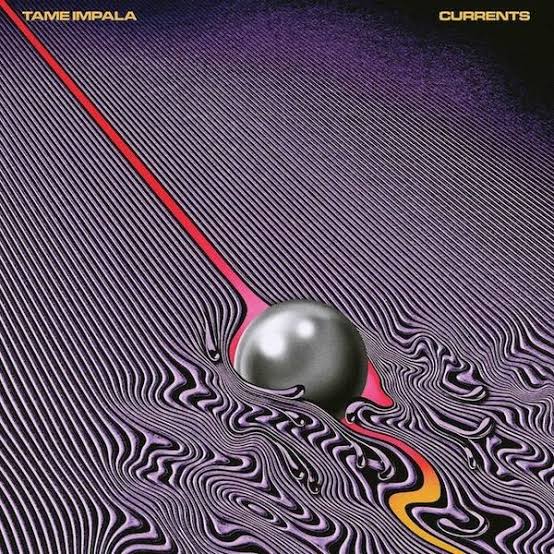
Psych rock has been the tag attributed to Tame Impala up to now, but would you expect such an accomplished band to trundle out the same smack as before? “They say people never change, but that’s bullshit,” Parker sings defiantly on ‘Yes I’m Changing’, as guitars make way for more electronic (read: dance and pop) elements than on any Tame Impala release thus far. There are a few notable exceptions, such as the record’s emotional tipping point ‘Eventually’ and the goofy disco-funk number ‘The Less I Know the Better’.
These are the times, people: some of the best Australian music is being made right here, right now. Well, in Fremantle, to be precise. Currents is the sound of Parker dropping his guard and embracing everything he loves about great pop music.
By Paul McBride
#15: Nick Cave and the Bad Seeds — Skeleton Tree
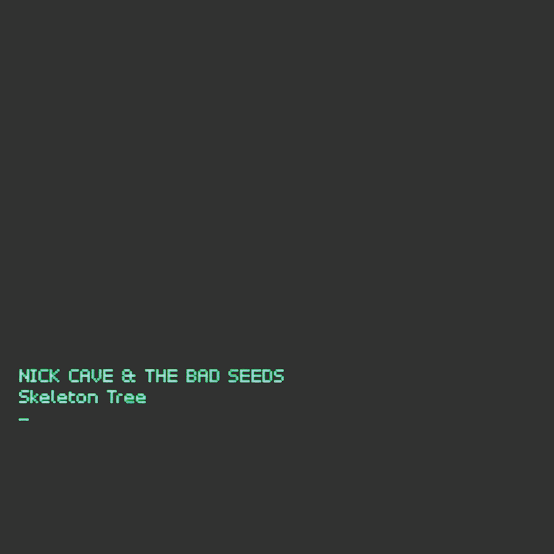
Skeleton Tree is an un-album. It’s a record defined by loss, a chronicle of missing things, and its power derives as much from what it doesn’t contain as from what it does.
Songs break and buckle under the weight of suggestion, and a host of known unknowns press down on the record with all the insistence of a brain tumour against the back of the eye.
The record is dark, of course, but it’s not an all-out exercise in despair, and the piece is full of spit-soaked snatches of beauty.
By Joseph Earp
#14: King Gizzard & The Lizard Wizard — Nonagon Infinity
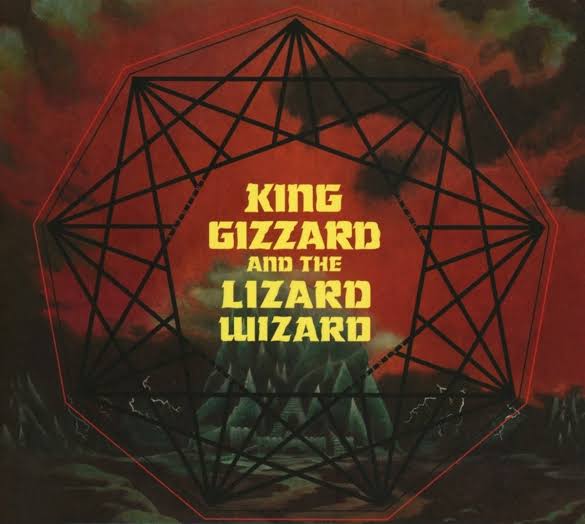
In typical King Gizzard & The Lizard Wizard-style rubbery reality, Nonagon Infinity is a trip – a wild, freaked out excursion into the sonic ether and back again, where time and space coalesce into a dynamic, poly-dimensional form.
It starts like a star shooting into space. ‘Robot Stop’ is all freakish electronic noise and rhythm, some almost indecipherable robotic vocal refrains, and explosions of colour and movement. ‘People-Vultures’ provides brief respite, followed by immersion back in Gizzard’s weird and wonderful slice of time and space.
You roll with the moment, and then you fall into ‘Road Train’ and it’s a black leather-clad journey into the outer realms of ’70s rock that only Gizzard know exist. And then it’s all over, a cliff face finish that leaves you wondering what to do next. The answer is obvious: turn it over, and start again. It’s an infinite trip.
By Patrick Emery
#13: Kendrick Lamar — good kid, m.A.A.d city

Kendrick Lamar is the shining star of new school hip hop. With good kid, m.A.A.d city, his ear for bold, left-of-centre beats doesn’t falter while his capacity to flesh out imagery and rhyme through action is superb. Weaving listeners through detailed narratives, his raspy vocals and seamless flow make way for Lamar’s idiosyncratic style. Reconnecting with an often explored theme, he delves into his conflicted views on sin and faith. Reflecting on his career, he describes — though somewhat abstractly — the reality of being in the spotlight and its poison.
All killers, no fillers, Lamar is a lyrical force to be reckoned with.
By Tamara Vogl
#12: Bon Iver — Bon Iver

In their ‘spring’ album, Bon Iver’s pivot to a far more ethereal quality is obvious, with tracks like ‘Holocene’, ‘Michicant’ and ‘Wash’ having a far fuller sound than their predecessors. What’s more, their self-titled record indicated a shift away from the folk sound ingrained in For Emma, Forever Ago and towards elements of chamber pop. The closer, ‘Beth/Rest’ is a completely different story entirely, with a large ‘80s ballad pop influence taking over. Now that we have the gift of hindsight, it’s funny to think about how Vernon was set to change his style yet again in future records.
By Caleb Triscari
#11: Tame Impala — Lonerism

In the lead up to Tame Impala’s second LP, Lonerism, Kevin Parker spoke of an affinity with pop music that influenced his songwriting, however, he has not reneged on his former adventurousness in favour of the short and snappy.
Despite the spacey psychedelic impression, Tame Impala’s music is no whacked-out accident. Parker has often stressed the calculated nature of the music he makes and the liberal dollops of phaser, reverb, delay and extensive panning central to Lonerism’s sound are implemented to make a particular impact.
Lonerism is an illustration of how Parker’s deliberative approach to songcraft allows key ideas to be successfully emphasised without meandering into incoherence.
By Augustus Welby
#10: Kendrick Lamar — DAMN.
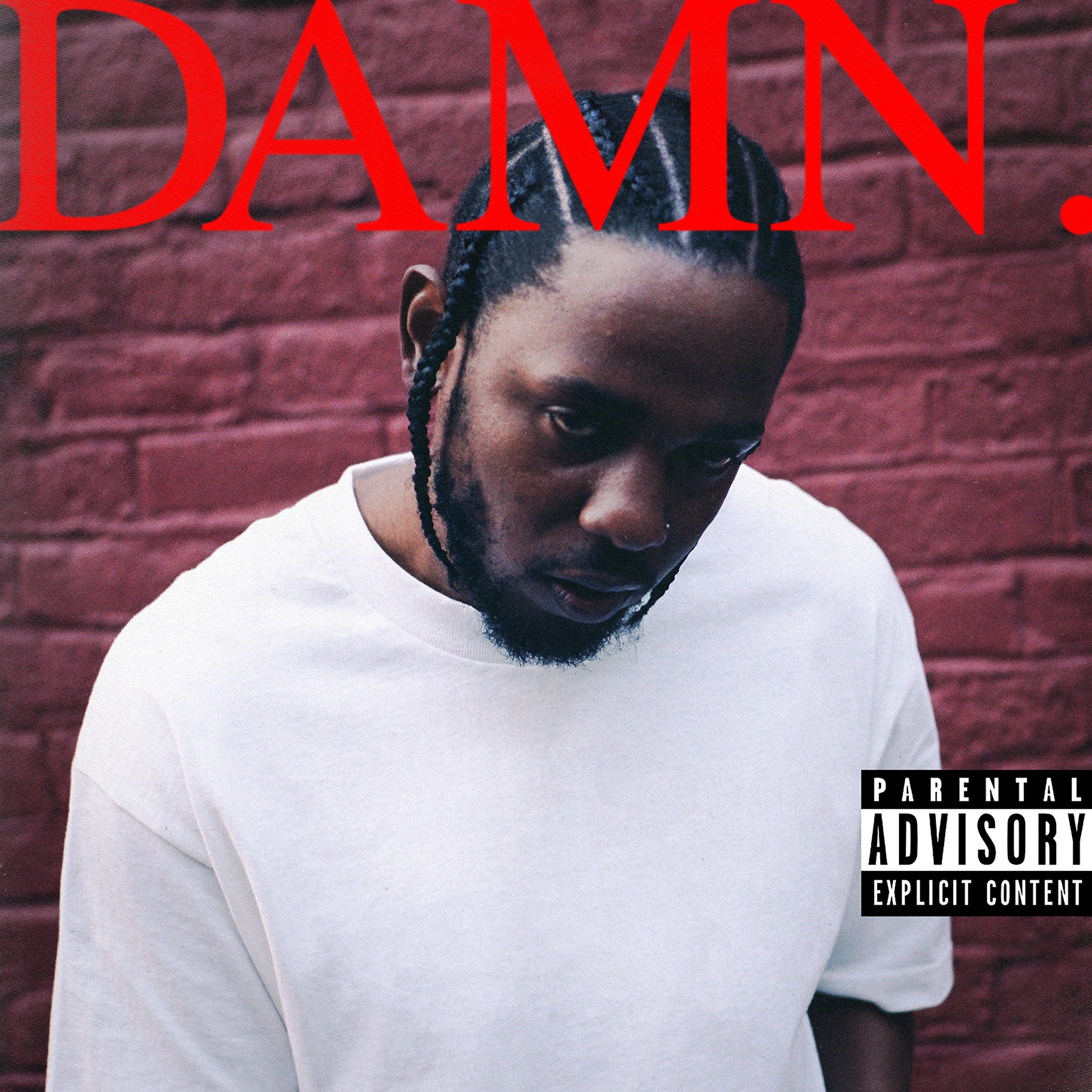
There aren’t any other rappers who can generate such crisp beats, technical flow and poignant lyrics. Every bar, every track, is a testament to a prodigy showing his expertise. The production is an equal component to the record, treated with the same regard as the writing, or the flow.
Kendrick will certainly suffer some backlash from purists this time around. Anything that generates this level of hype is going to attract invitation for ire, or dismissal from fans. Add in features from U2 and Rihanna and haters are going to have some ammunition. Overall, with tracks like ‘YAH.’, ‘DNA.’, and ‘ELEMENT’, this is one heck of an album. Judge it for yourself, it’s straight fire.
By Jimmy Hall
#9: Lorde — Melodrama
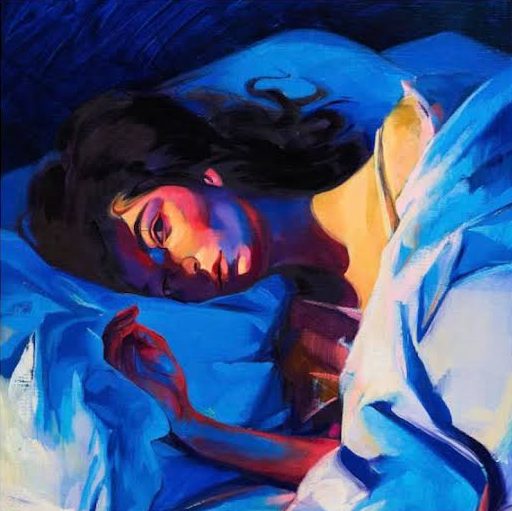
In 2013, Lorde’s debut Pure Heroine was a dynamic, jaw-dropping album and, ultimately, a tough act to follow. Rather than produce another album that rode on Pure Heroine’s success, Lorde waited to create an album of a similar magnitude. Four years of anticipation later, her second album Melodrama was worth the wait. Melodrama is a celebratory exploration of young and temporal love. Its lyrical rawness intertwined in a more lively pop atmosphere highlights Lorde’s continual musical prowess; she’s a force to be reckoned with.
By Rose Maurice
#8: David Bowie — Blackstar
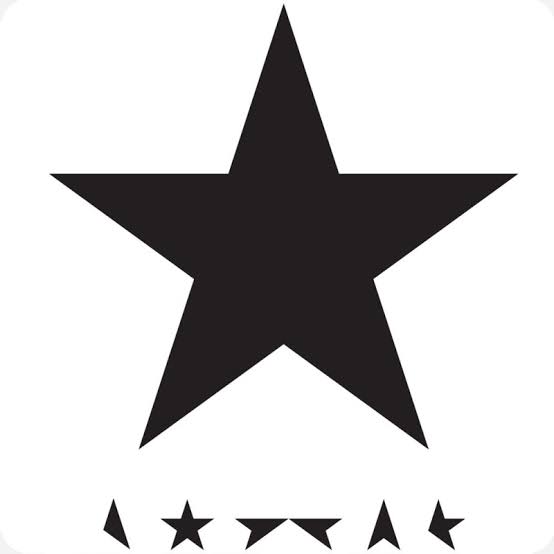
David Bowie knew what he was doing when he released Blackstar. Dropped just days before his passing, the record told of a Bowie with nothing left to lose. “Look up here, I’m in heaven” in ‘Lazarus’ is a particularly poignant line from Bowie, who was secretly living with liver cancer for 18 months. As for the rest of the record, Bowie takes a step back through time, dipping into his jazz-influenced stylings of records past. The world was left blindsided by Bowie’s sudden death, but he knew that would be the case, singing, “This way or no way, you’ll know I’ll be free”.
By Caleb Triscari
#7: Radiohead — A Moon Shaped Pool

Driven by Jonny Greenwood’s masterful string arrangements and Thom Yorke’s gut-wrenching vocal performances, A Moon Shaped Pool sees Radiohead largely eschew their experimental side to deliver a concise, enchanting record that ranks high up in their illustrious catalogue. The manipulated pianos of ‘Glass Eyes’ and ‘Daydreaming’ work to a haunting effect, while the interplay between the icy synths and jagged guitars on ‘Identikit’ creates one of the band’s best instrumental moments to date. However, the highlight here is album closer ‘True Love Waits’; a tear-jerking, acoustic deep cut re-imagined by Yorke to lament the loss of his long-term partner Rachel Owens. Nobody merges misery with beauty quite like Radiohead.
By Will Brewster
#6: Frank Ocean — channel ORANGE

There are resounding thematic elements throughout channel ORANGE, the studio debut from OFWGKTA associate Frank Ocean. It’s a record littered with a pastiche of found sounds – some nostalgic, some future nostalgic. Perhaps it’s a concept record in that sense, but to articulate it as such would be missing the point.
channel ORANGE achieves a certain purity, some sort of realness. Tracks bleed into each other, tracks come to an abrupt, disjointed end – some seem half-finished ideas, some are mitigated skits. It’s this confluence of raw intimacy and decided elusiveness which defines channel ORANGE.
Grappling masculinity, alienation, privilege and sensuality, Ocean crafts a record which belies his youth. There’s little on channel ORANGE for the club. There’s everything for the heart.
By Lachlan Kanoniuk
#5: Frank Ocean — Blonde

Though it’s tempting to assume Blonde’s soulful surface and its darker suggestions are somehow distinct from each other, for Frank Ocean, pain and beauty work in the same way. “In hell, in hell there’s heaven,” he croons on ‘Solo’, his voice all suggestion and smoke. Even a song like ‘Ivy’, a coiled loop of a melody ready-made for the radio, has a bitterness soaked through it. It’s both of these things at once then – dark and danceable, pathetic and poppy.
But more than anything, it’s sincere. It’s rare to encounter a record so unashamed; so open in its invitation. Ultimately, Blonde has things to offer and asks nothing in return but that you listen.
By Joseph Earp
#4: Beyoncé – Lemonade
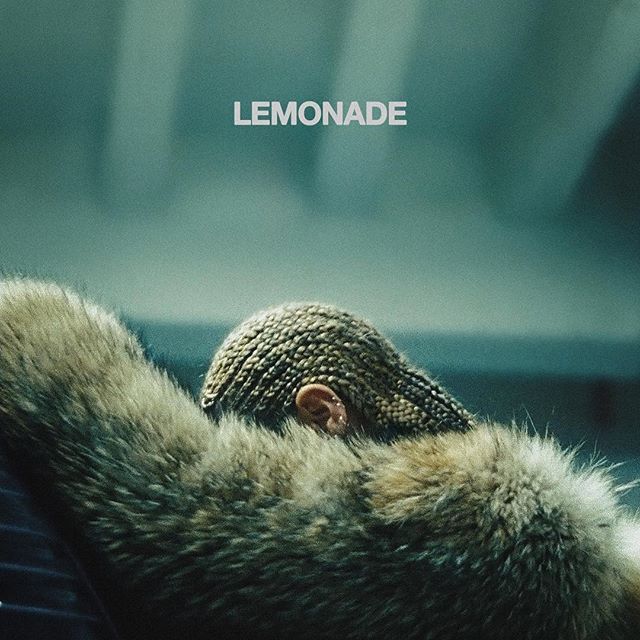
When Beyoncé dropped her visual album Lemonade, the world collectively lost its shit. It launched thorough investigations and conspiracies surrounding the identity of Jay Z’s mistress “Becky”, while the album and its visual counterpart were heralded as an artistic triumph and pop culture phenomenon.
Featuring collaborations with James Blake, Kendrick Lamar, The Weeknd and Jack White, the record teeters between high-octane bops and dark, heaving ballads. Encompassing her husband’s infidelity while bolstering women and people of colour, Lemonade is an ode to agency, self-fulfilment and, above all, not taking anyone’s bullshit.
Don’t mess with Beyoncé.
By Kate Streader
#3: Kanye West — My Beautiful Dark Twisted Fantasy
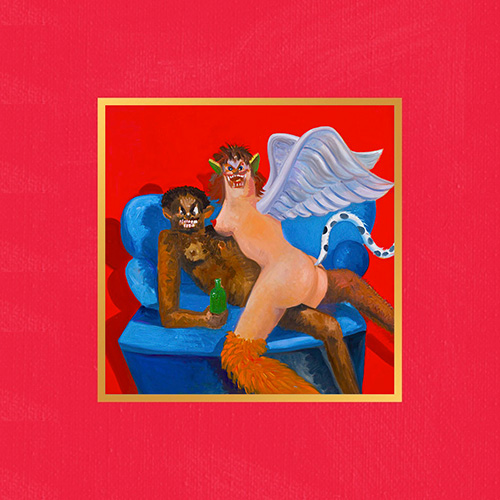
My Beautiful Dark Twisted Fantasy? More like: my beautiful, dark, twisted, deep, shamelessly ugly, confronting, enlightened, refreshing, introspective, fuckin’ ridiculous, self-effacing, self-aggrandising, 35 minute phoenix-fucking film clip-accompanied, interpersonal, intrapersonal, auto-flagellated, Kings Of Leon-checking, uplifting, grandiose, Napoleonic complex-bearing, Napoleon Dynamite-quoting, flaw-exaggerating, meme-defying, paradigm-shifting, humourless, 21st century, schizoid, King Crimson-sampling, punch-drunk, drug-addled, drug-renouncing, mainstream-encompassing, unifying, pornographic, porn star-matrimony aspiring, bombastic, iconoclastic, MJ-mourning, mother-yearning, zeitgeist-capturing, era-defining, genre-defying, hip-hop-historical, mould-breaking, logically extreme, overblown, subdued, reflective, precise, ego-stroking, monstrous, peerless, all-star, obscure Bon Iver EP-borrowing, RZA-assisted, Chris Rock-reviving, Nicki Minaj-star-making, MC Hammer petty beef-instigating, sneering, snarling, empire-building, critically-acclaimed, 10 from Rolling Stone-scoring (who gives a shit?), 10.0 from Pitchfork-scoring (HOLY FUCKING SHIT!), giddying, frightfully great, finely crafted, hyperbole-inducing, goddamn masterpiece of a fantastical fantasy.
I mean, this shit is fuckin’ ridiculous. Fuckin’ ridiculous.
#2: Arctic Monkeys — AM
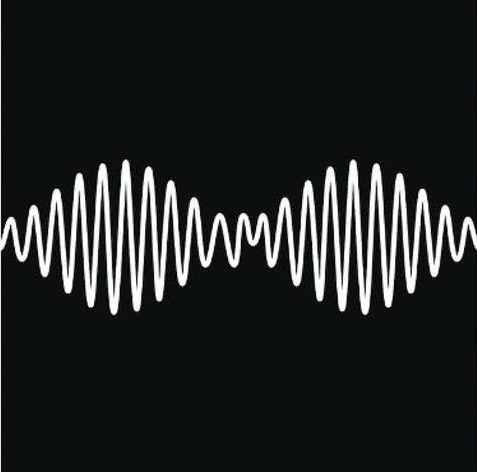
Toeing the line between wistful, lovelorn musings and dancefloor bangers, it’s no wonder why AM is one of Arctic Monkeys’ most popular releases. Sleek yet seedy, the album traverses nightclub dance floors and motel rooms, each in a desperate bid to escape the ever-present loneliness weighing on Alex Turner’s psyche.
Posing questions from ‘Are you mine?’ to ‘Why’d you only call me when you’re high?’, Turner illustrates the spectrum of intoxication and frustration that comes with being in love and lust.
Flitting between blistering, straight-up rock belters and softly-sung ballads, AM is a testament to Arctic Monkeys’ ethos of doing whatever the fuck they want.
By Kate Streader
#1: Kendrick Lamar — To Pimp A Butterfly
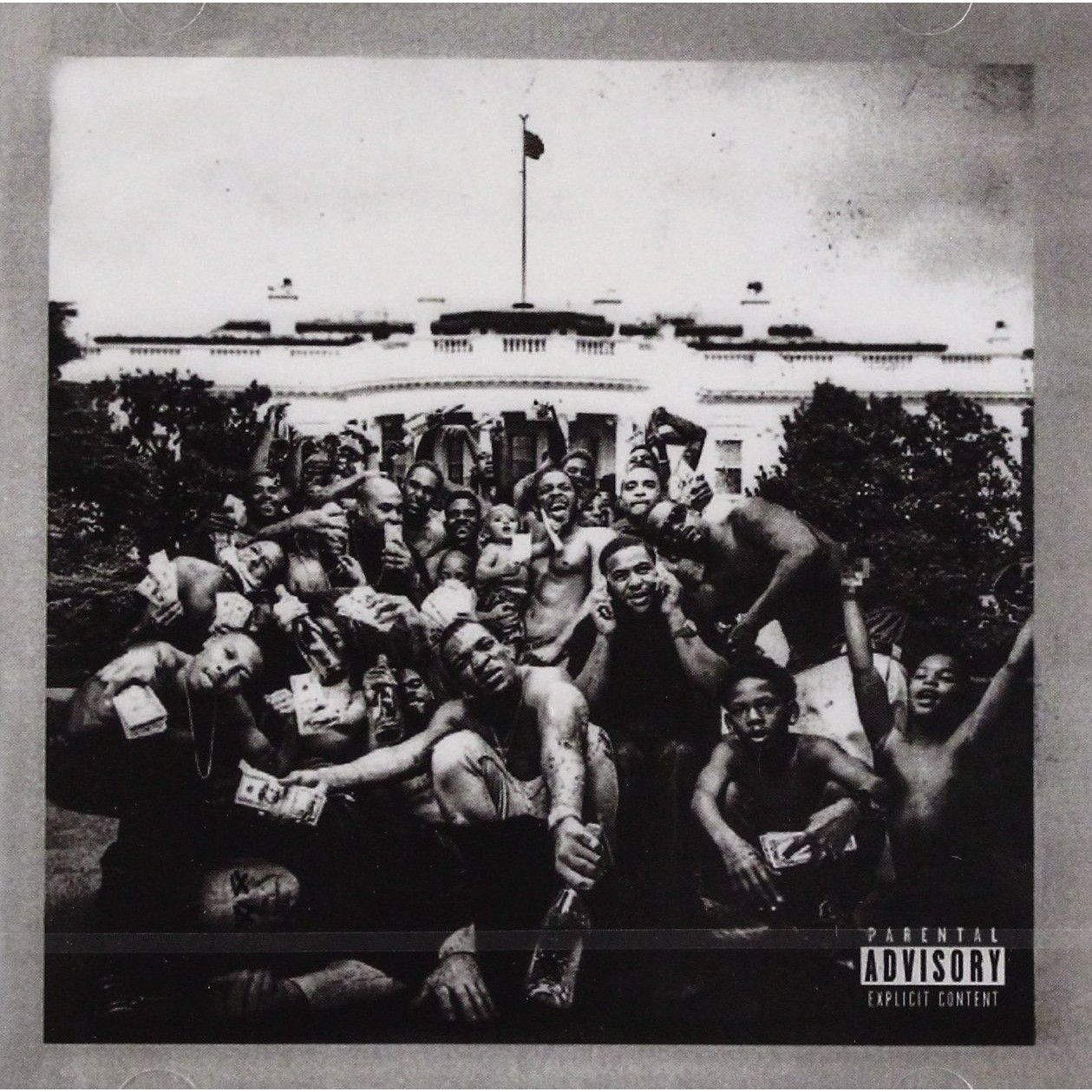
To Pimp A Butterfly sees Lamar leave behind the catchy, radio-friendly anthems of its predecessor, branching off in ways no one would’ve imagined. It’s poetic, philosophical and socially aware, yet deeply conflicted. It still features the same, deep personal criticism and self-reflection, but Lamar takes it further this time round. ‘u’, the counterpart to single ‘i’, is uncomfortable, yet mesmerising to listen to, as Lamar progresses into an alcohol-fuelled breakdown, essentially sobbing the last two verses of vicious self-criticism.
It’s not a comfortable or easy listen by any means – from its themes to the sheer length of it – but it is certainly worthwhile. Lamar could’ve taken the easy route and continued along the same path as his first album, on Butterfly you feel the pressure and responsibility he feels to act as a voice to the people and live up to the influences he idolises so much.
By Kelsey Berry
To check out the rest of the decade’s best music, head to our wrap-up.
Never miss a story. Sign up to Beat’s newsletter and you’ll be served fresh music, arts, food and culture stories three times a week.
